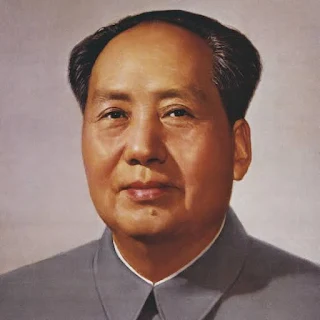Why Is It Considered "Evil" to Be Rich?
The term "evil" might not be the best way to describe wealth itself. Instead, the issue often lies in the broader implications of economic systems that allow disparities between the rich and the poor. The conversation around wealth is rooted in the dynamics of class systems and their potential to shape societies in significant, sometimes harmful, ways. Let’s explore perspectives from influential thinkers and historical examples that illustrate this nuanced debate.
Marx and Engels: Predicting a Class Struggle
Karl Marx and Friedrich Engels argued that class systems, which divide society into the rich and the poor, are inherently exploitative and have the potential to become oppressive. According to them:
- The rich would always dominate as rulers, while the poor would remain subjugated.
- Over time, this inequality would lead to discontent among the working class, culminating in a revolution.
- This revolution, they believed, would dismantle the class system and establish a "workers' paradise," or socialism.
In their view, wealth itself wasn't inherently evil, but its concentration in the hands of a few, coupled with systemic exploitation, created conditions ripe for conflict and injustice.
Adam Smith: The Necessity of Economic Classes
Adam Smith, often regarded as the father of modern economics, had a contrasting perspective. He proposed:
- A division between the rich and the poor was essential for economic growth.
- However, this system should operate under a fair set of equal laws, allowing upward mobility for the poor and preventing the rich from indefinitely maintaining their status.
- Smith emphasized the profit motive, suggesting that the drive to overcome poverty and attain wealth was the foundation for economic progress.
Smith's model was less about dismantling wealth and more about ensuring that opportunities were accessible and the playing field was level.
Durkheim: Advocating for a Middle-Class Economy
Sociologist Émile Durkheim sought a middle ground between Marx’s socialism and Smith’s capitalism. He argued:
- Wealth, as a defining class feature, should be abolished.
- Society should foster a large middle class with moderate means, enabling individuals to thrive and contribute to the common good.
- Laws should be created and enforced by the middle class, ensuring fairness and balance between the rich and the poor.
Durkheim’s vision emphasized stability through shared prosperity, avoiding the extremes of wealth disparity or absolute equality.
The Chinese Perspective: Evolution of Economic Theories
Mao Zedong: A Farmer-Centric Approach
In communist China, Mao Zedong adapted Marx’s theories but shifted the focus from workers to farmers. Mao proposed:
- Farmers, as the backbone of the nation, should shape laws and governance.
- Educated professionals and leaders should emerge from farming communities, not elite circles.
- Businesses should be state-run, with representation from the farming class.
Mao's approach sought to empower the rural population and diminish the influence of traditional elites.
Deng Xiaoping: Introducing Meritocracy
Deng Xiaoping diverged from Mao by blending elements of capitalism and socialism. His key contributions were:
- Adopting Adam Smith's capitalist principles to fuel economic growth.
- Retaining Marx’s focus on a worker-centric society but introducing a meritocratic system.
- Under Deng's meritocracy, individuals could ascend economically based on their abilities and contributions, ensuring opportunities for the poor to rise.
This hybrid model laid the groundwork for China's transformation into a global economic powerhouse.
Xi Jinping: Common Prosperity and Quality Growth
Xi Jinping further refined Deng’s model by emphasizing:
- Common Prosperity, aimed at narrowing the wealth gap and uplifting the middle class.
- Creating New Quality Productive Forces, focusing on innovation and productivity to drive economic advancement.
This approach aims to accelerate social mobility and sustain China’s economic momentum while addressing inequality.
Is It Evil to Be Rich?
Wealth itself isn't inherently "evil." The real question lies in how wealth is accumulated, distributed, and used within society. If being rich contributes to societal well-being, fosters innovation, and enables others to thrive, it can be a positive force. Conversely, if wealth leads to systemic harm, exploitation, or perpetuates inequality, it can indeed have negative consequences.
Key Takeaways
- Marx and Engels: Highlighted the dangers of unchecked class systems, predicting rebellion and the rise of socialism.
- Adam Smith: Advocated for economic classes but emphasized fair laws to ensure opportunities for all.
- Durkheim: Proposed a balanced society led by a thriving middle class.
- China's Evolution: Moved from Mao’s farmer-centric socialism to Deng’s meritocracy and Xi’s vision of common prosperity.
Conclusion
The debate over wealth is complex, involving philosophical, economic, and social dimensions. While wealth itself isn’t inherently bad, the systems governing it can significantly influence societal outcomes. Achieving a balance—where economic classes exist but opportunities are equitable—is the ideal that many societies strive for. As history and theory suggest, this balance is not easy to maintain, but it’s crucial for long-term stability and growth.
Frequentyl Asked Questions (FAQs)
Is wealth inequality always harmful?
Not necessarily. Some level of inequality can incentivize innovation and hard work. However, extreme disparities often lead to social unrest and hinder collective progress.
Can socialism and capitalism coexist?
Yes, many modern economies combine elements of both. For example, social welfare programs within capitalist systems aim to reduce inequality while maintaining economic growth.
What is the role of the middle class in reducing inequality?
The middle class acts as a stabilizing force in society. It bridges the gap between the rich and poor, promotes economic growth, and ensures fair representation in governance.
This nuanced understanding highlights the importance of creating systems that encourage fairness, innovation, and shared prosperity.
>
Don't forget to drop a comment. We'd love to hear your thoughts!







Post a Comment